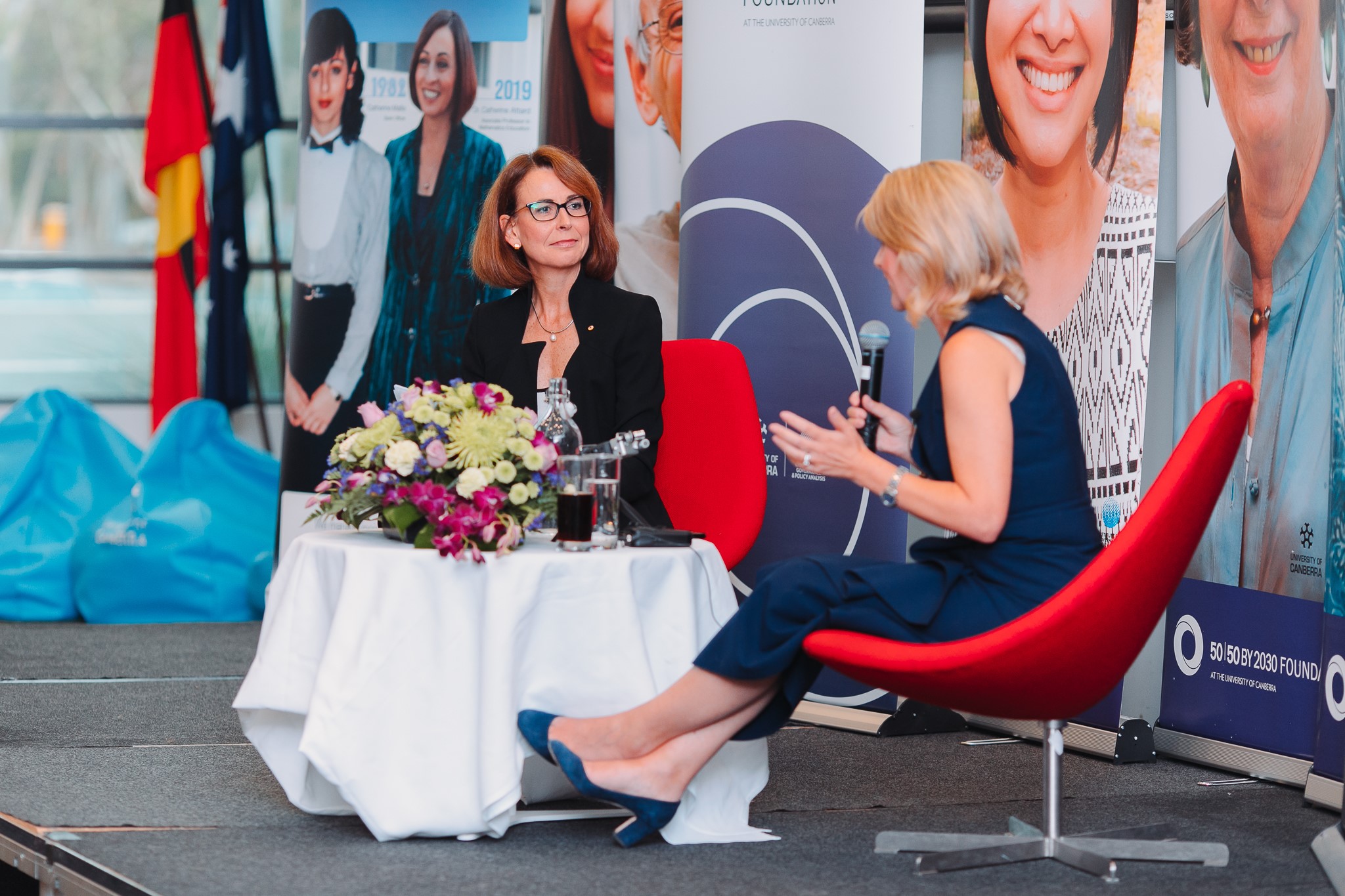When Natasha Stott Despoja’s 15-year-old son Conrad shared the news that, according to his commerce teacher, female athletes should not be paid as much as male athletes, she was dumbstruck.
“I just assumed we were a tight caucus in our family,” she told Virginia Haussegger during a sold-out International Women’s Day event at the University of Canberra on Tuesday evening.
For someone who, in 1995, was the youngest woman to be elected to Federal Parliament, who is an avowed feminist, and who spends much of her life “consumed by the issue of preventing violence towards women”, the commerce teacher’s lazy comment rattled her.
The research tells us that teachers are the biggest influence on our children’s lives
“It doesn’t matter what we are doing at home, the research tells us that teachers are the biggest influence on our children’s lives,” she said.
“So how do I in my daily life attempt to counter that? People ask when I am going to write my memoir. Far out, I’ve got to deal with the commerce teacher first!”
 During the hour-long conversation, Ms Stott Despoja, who is currently the chair of Our Watch, a national foundation to prevent violence against women, spoke candidly about her entry to Federal Parliament at the age of 26 and her rise to prominence as the Australian Democrats’ longest-serving Senator between 1995-2008.
During the hour-long conversation, Ms Stott Despoja, who is currently the chair of Our Watch, a national foundation to prevent violence against women, spoke candidly about her entry to Federal Parliament at the age of 26 and her rise to prominence as the Australian Democrats’ longest-serving Senator between 1995-2008.
When Ms Stott Despoja was elected, women made up just 14% of federal parliament. She told the audience that the first question she was ever asked during a Senate business lunch was whether she had “entered politics in order to find a husband”.
She found the ongoing media commentary about her sex, her hair colour, her footwear and her marital and parental status “absolutely debilitating – and I’m glad I didn’t let it show”.
“The question was how do I manage this and get through this without it compromising some of the qualities that I bring as a real person who cares about issues.”
She introduced 25 Private Members Bills, including for paid parental leave, same sex marriage, genetic privacy and stem cells
She noted that during that time, she introduced 25 Private Members Bills, including for paid parental leave, same sex marriage, genetic privacy and stem cells – all well ahead of their time.
“I feel very proud of those private members bills. Because my love was always legislating. That’s what I miss about politics. I don’t miss the media and the politics and politicians. But I can’t tell you what it’s like to wake up in the morning, see an issue in the paper, and think that with a stroke of a pen – or more likely a keyboard these days – you can change people’s lives for the better.”
 She despairs about the lack of civility in modern politics and acknowledges that even while the number of women in representative positions had increased – the Senate now has 50% female members – the behaviour has arguably become much worse.
She despairs about the lack of civility in modern politics and acknowledges that even while the number of women in representative positions had increased – the Senate now has 50% female members – the behaviour has arguably become much worse.
“My mum always says that the powerless tend to align with the powerful in order to survive. When you have a culture that is so entrenched and you only get ahead by displaying comparable behaviour or characteristics, then people go along with it,” she said.
I want us to think of politics as an honourable profession, but how can we when we look at what goes on?
“How cynical and disillusioned we all feel [about Parliament]. I want us to think of it as an honourable profession, but how can we when we look at what goes on? That said there are good men and women who do really good things every day.”





